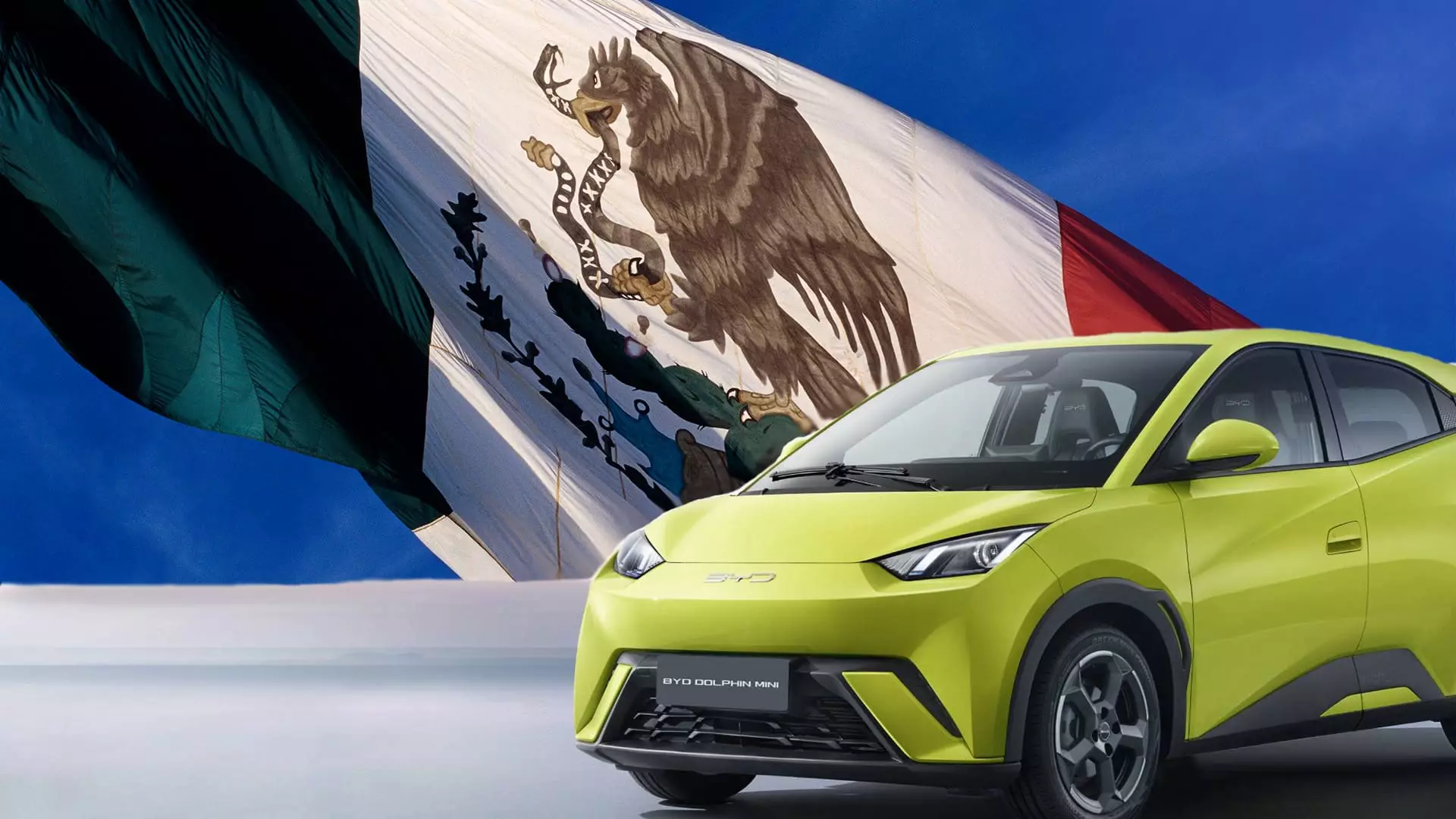Chinese electric vehicle makers have been blocked from the U.S. market due to tariffs, leading them to explore other opportunities around the globe. One of the hot spots for Chinese EVs has been Mexico, where they have gained significant traction. Last year, China became the leading car supplier to Mexico, exporting billions of dollars worth of vehicles to the country. The competitive pricing of Chinese EVs has attracted customers, with Tesla rival BYD selling their Dolphin Mini at a fraction of the cost of a Tesla in Mexico.
In a bid to further establish their presence in North America, some Chinese EV makers, including BYD, are looking to set up manufacturing plants in Mexico. This move not only promises economic growth for Mexico but also raises concerns among U.S. officials. The fear is that Mexico could serve as a “backdoor” for Chinese automakers to enter the U.S. market, bypassing trade restrictions in place.
The United States-Mexico-Canada Agreement (USMCA), which replaced NAFTA, allows goods produced in Mexico to be exported to the U.S. duty-free if certain conditions are met. This trade access has made Mexico an attractive production platform for Chinese companies looking to circumvent trade restrictions with the U.S. by proving that their products are assembled using locally sourced materials.
The prospect of Chinese EV manufacturers setting up operations in Mexico poses a significant threat to American automakers. With lower production costs, Chinese EVs could potentially undercut American competitors in terms of pricing, posing a challenge to the burgeoning EV industry in the U.S. Lawmakers and industry experts are concerned about the impact this could have on the domestic automotive sector.
The Need for Protection
In response to the growing concern, President Joe Biden announced a 100% tariff on Chinese EVs entering the U.S. market. The move aims to protect the fledgling EV industry in the U.S. from foreign competition, especially from countries like China, which have a track record of utilizing trade loopholes to gain a competitive advantage.
Balancing Act for Mexico
Mexico finds itself in a delicate position, torn between maintaining its crucial relationship with the U.S. and welcoming Chinese investment. The pressure from the U.S. to prevent Chinese EVs from entering the American market through Mexico complicates the country’s economic strategy, forcing them to navigate carefully to avoid upsetting either party.
The rise of Chinese electric vehicles in Mexico and their potential implications for the U.S. market underscore the complex nature of global trade relations. As Chinese automakers seek new avenues to expand their reach, countries like Mexico must tread cautiously to balance economic opportunities with political considerations. The ongoing debate surrounding the influx of Chinese EVs serves as a reminder of the intricate web of trade policies and protectionist measures that shape the automotive industry on a global scale.

Leave a Reply